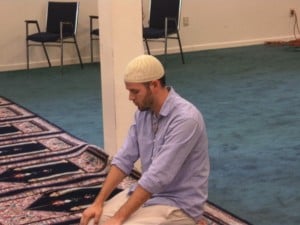High-five, congratulations, and Eid mubarak! Today millions of Muslims around the world celebrate the end of the holy month of Ramadan. If you are among those who observed Ramadan, you just exercised one of the most blessed times of the year. Ramadan is indeed a detox program for our body, soul, and mind.
- We abstained from food and drink during the daylight hours to remind us of how much we might waste in our daily lives and to lighten our bodies for greater tasks.
- Because of this, we now have a greater understanding of our less fortunate brethren and can be of greater service to them through sadaqa and zakat. Though Eid is a time for visiting family and friends, the Prophet Muhammad (pbuh) also asked us to visit the poor and needy.
- We also abstained from our base needs and instincts during Ramadan, such as sex, vulgarities, and negative behavior. With our patience increased, we can go forth in a world of constant malevolence and display empathy and kindness with greater endurance.
Eid al-Fitr is typically celebrated in the Muslim world for about three days, and is marked by joyous gatherings around food, family, and gifts. The term means Eid=”festivity” and al-Fitr= “breaking” (of the fast). Congregations gather in masjids or other open spaces/fields for a communal salat called the Eid al-Fitr Salat, which is comprised of two rakah’s (units), as well as a talk by the learned. My masjid is celebrating on the 31st, so I’ll experience that prayer tomorrow. There is also a special zakat given before this prayer (anytime during the month) called Zakat al-fitr.
For those of you who observed Ramadan with me and followed my progress both here and with the Congregation on Facebook, thank you. In many ways, Ramadan is a race–not of individuals–but of a community of believers. The journey is difficult due to the heat of the day and the demands of a secular culture hell-bent on rampant consumerism. Only as a community pulling one another along can Ramadan bless those who strive for good.
We also recognize and do greater works for those who observe the fast every day–not by choice–but because they are simply without. Muslims now understand, at least by a portion, how it feels to go hungry and have increased their empathy toward these people. With such understanding comes action, action for a solution. On so many occasions, Prophet Muhammad admonished Muslims to be a blessing to the poor and needy. With our training during Ramadan complete, we can now put these ideals into practice.
Inshallah, you had a wonderful Ramadan experience. What were your greatest challenges during the month? If this is your first Ramadan, what did you find most interesting? What new perspectives have you gained through the Fast?

